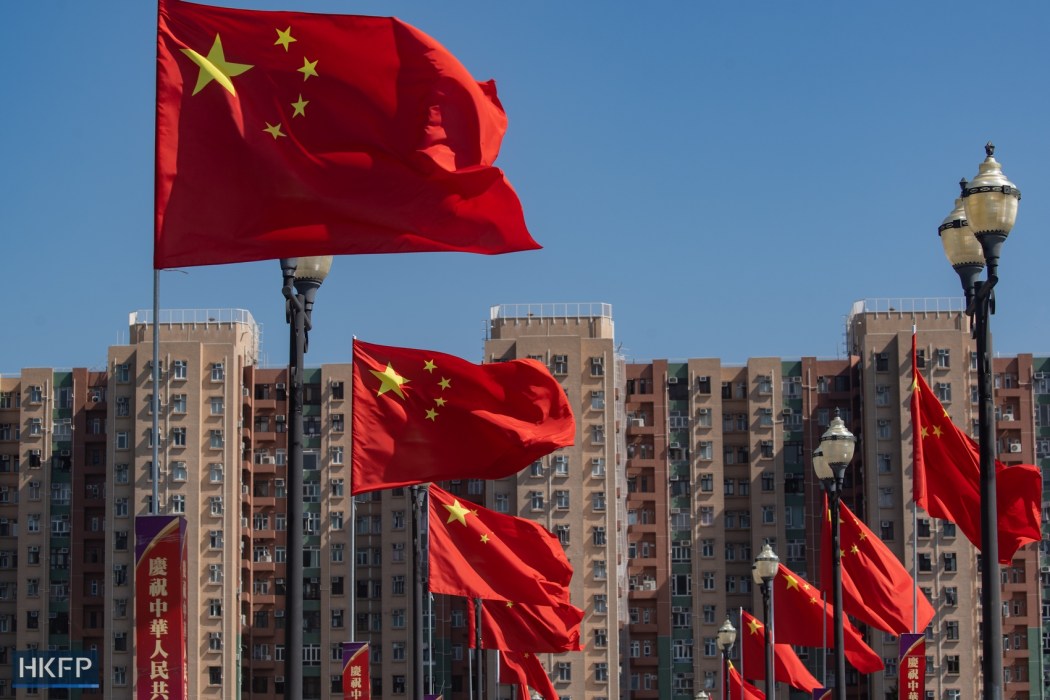Hong Kong Authorities Sentence 45 Pro-Democracy Activists to Up to 10 Years Under National Security Law
By [Your Name]
Date: [Insert Date]
In a significant move that has stirred international outrage, Hong Kong authorities sentenced 45 pro-democracy activists on Tuesday to prison terms of up to ten years. This action is a direct application of the stringent national security law imposed by China, which has been criticized globally as a tool for suppressing dissent and eroding freedoms in the region.
The activists were charged with a conspiracy to commit subversion, rooted in allegations that they planned to disrupt government operations by blocking budget proposals with the intention of forcibly dissolving the legislative council. Their goal was to destabilize the current administration led by Hong Kong’s chief executive.
Among the 47 individuals initially charged under the same conspiracy, 31 accepted plea deals resulting in guilty pleas, while 14 others were convicted following a courtroom trial. Only two defendants managed to evade a conviction and were acquitted, highlighting the tough stance taken by the judicial system under the national security framework.
The sentences handed down range significantly, with some activists receiving substantial prison terms that have been condemned widely as excessive and politically motivated.
Western nations, particularly Australia and the United Kingdom, have voiced strong objections to the sentences. The Australian government, which has a citizen, Gordon Ng, among those sentenced, has issued protests to both Hong Kong and Beijing officials. Australian Foreign Minister Penny Wong has expressed profound concern over Ng’s imprisonment, calling for immediate action.
Similarly, the UK government condemned the sentences, accusing Beijing of systematically curtailing freedoms in Hong Kong. Catherine West, the UK Minister for the Indo-Pacific, stated that the individuals punished were merely exercising their fundamental rights to free speech, assembly, and political participation.
The U.S. consulate in Hong Kong joined the chorus of disapproval, demanding an end to politically driven prosecutions. Their statement called for the immediate release of all political prisoners, emphasizing the need for respect for basic human rights and freedoms.
The harsh sentencing is part of a broader trend of crackdowns on pro-democracy voices in Hong Kong. In a related development, two journalists were recently imprisoned for allegedly engaging in “seditious” activities through their media platform, Stand News. This case reflects a worrying trend in which the press is being increasingly stifled amid efforts to silence dissenting voices.
Chung Pui-kuen, the former editor-in-chief, was sentenced to 21 months, while his successor, Patrick Lam, received a 14-month sentence, which was partially reduced due to his health issues and time already served. These sentences mark some of the first instances of journalists facing such allegations since the 1997 handover of Hong Kong from British to Chinese rule.
The fate of these 45 activists raises serious questions about the future of dissent and political engagement in Hong Kong. The imposition of the national security law has been characterized by many as a means to systematically dismantle the city’s legal and civil liberties framework, which once set it apart from mainland China.
As dissent is met with heavy-handed penalties, the prospect for a flourishing civil society in Hong Kong appears grim. Activists worry that the government will continue to target any form of political participation that challenges its authority, leading to a chilling effect on public discourse.
A Stern Reaction to Dissent
Details of the Sentences
International Reactions
Australia’s Concerns
Condemnation from the UK
U.S. Stance on Political Prosecutions
Recent Crackdowns on Press Freedom
The Implications for Hong Kong’s Future
This HTML format includes a structured presentation of the article with headings and sections, featuring a journalistic style that enhances readability while maintaining the critical information from the original piece.
